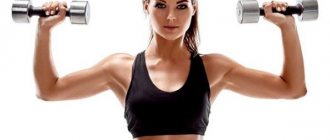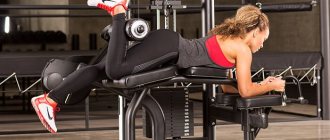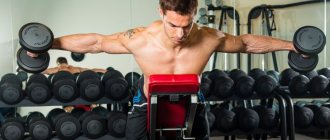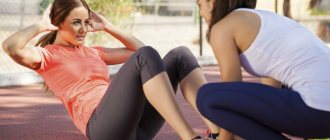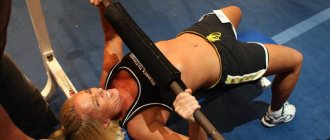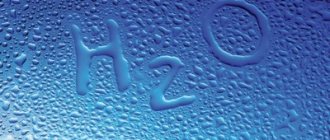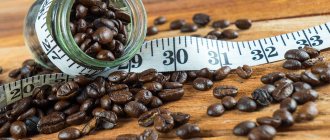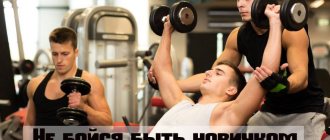What to drink before training: general scheme
The most important recommendation on this topic is very simple: you should not allow yourself to get thirsty during fitness classes! Sports medicine has clear recommendations on how to build your drinking regimen. “Drink 0.5 liters 1-2 hours before training,” explains Nadezhda Levchenko , sports doctor, fitness testing specialist at the federal network of fitness clubs X-Fit.
-Then take a few sips every 10-20 minutes of your workout. Finally, drink 0.5 liters within an hour after your workout.” Now let's look at each of the drinks separately.
What to drink before training: water, isotonic drinks, tea
Dehydration of the body (dehydration) leads to premature fatigue, poor health and even the inability to continue exercising. During training, it is best to drink plain water or so-called isotonic drinks (sold in sports nutrition stores and fitness bars). “They usually contain minerals and a small amount of carbohydrates,” says Anastasia Yurkova , fitness manager of the X-Fit Monarch club, personal trainer of the group programs of the federal network of fitness clubs X-Fit. “They are needed, first of all, during intense and long-term endurance training in order to maintain water-salt balance. You need to drink in small sips during training.”
As for water, so-called table mineral water without carbon is best suited for constant consumption: it quenches thirst and helps replenish the deficiency of salts in the body. “As a result of high sweating, the body loses a lot of salts and minerals,” explains Dmitry Polyudov, production manager and technologist at the Pure Water - TM Noringa company. — And to compensate for lost microelements and restore water-salt balance during an active lifestyle, it is necessary to consume water enriched with micro- and macroelements. For example, our brand product (water enriched with minerals) was developed specifically for active people. The main difference between such water and ordinary drinking water is the increased content of calcium, magnesium and sodium. As a result, the body is saturated with the necessary salts, which contributes to an accelerated process of recuperation.”
Green tea helps quench your thirst when playing sports . “Its antioxidant properties help neutralize free radicals that are formed during exercise,” says Nadezhda Levchenko, “and the flavonoids contained in it protect cartilage tissue and improve the absorption of fats. There is evidence that drinking green tea helps increase the performance of athletes by 15–20%.”
Not just water
I recommend that if you drink water during training, then either dilute it with vitamins or use an isotonic drink. Don’t be afraid of this word, isotonic is an active nutrition that contains all the vitamins and minerals. During training, we lose not only water, but also nutrients. They need to be replenished. And to make up for protein losses, you need to consume amino acids with water. It is important. During training, our muscles begin to deplete, we strain them, they get tired. And you need good sports nutrition with water.
This drink can be extended over the entire training period, sipping a little at a time, one sip at a time.
What to drink before training: coffee
This drink in relation to training has ardent supporters and no less ardent opponents. The former rely on its tonic effect, the latter point out that coffee in large quantities dehydrates and can interfere with muscle growth. The truth, as always, is somewhere in the middle.
“When it comes to sports nutrition, caffeine plays a special role,” says Renee McGregor, biochemist, sports nutritionist and author of the best-selling book “Sports Nutrition. What to eat before, during and after training.” “It is used by many professional athletes as a performance-enhancing substance, but as with everything else, what is beneficial for one may not necessarily have a positive effect on another. There is evidence that if caffeine is completely eliminated from the diet for 10 days and then taken before competition, it will have a noticeable effect on a person who would not normally respond to it.”
In fact, 1-2 cups of natural coffee a day are only beneficial for athletes. “The substances contained in this drink help reduce muscle pain,” says Nadezhda Levchenko. “In addition, coffee stimulates the use of body fat reserves. Coffee with milk will help meet the body’s need for proteins and carbohydrates, but sugar, of course, is undesirable.” You should also remember that coffee has diuretic properties, so you should not drink it instead of water.
It is best to consume this drink before strength training, interval training, speed training and other explosive workouts, as caffeine improves fat loss and can literally provide a fountain of energy. “However, with frequent use in large doses, caffeine, as a rule, has the opposite effect,” warns Anastasia Yurkova. “It is impossible to endlessly stimulate the central nervous system; at some point, while adapting, it stops responding to an external stimulus. And it may simply turn off, then instead of vigor you will get drowsiness and lethargy.”
What to drink in the heat?
Regular water. Under no circumstances should you drink lemonade or juice. Because lemonade contains only dyes, flavors, and E-additives. This has an adverse effect on health. Sugar makes us want to drink even more, and we will never get drunk with lemonade. I don’t recommend juices either, these are pure carbohydrates. We won't find anything useful there.
Question answer
What drinks have the most calories?
For example, let's take apple juice. A glass is 200 grams. Many people think that a glass of juice is not harmful, but this is not true. Let's count. One apple contains 10 g of carbohydrates. To get a glass of juice, you need 6 apples. This turns out to be 60 g of carbohydrates. This means that we have just added 6 tablespoons of sugar to the glass. Okay, let’s say we don’t have sucrose here, but fructose, it’s healthier, but still!
If you really want to, you can drink a glass of freshly squeezed juice for breakfast. And I don’t recommend packaged juice at all. Lemonades too. As for mineral medicinal waters with salts, moderation must be observed. You can drink them, but in limited quantities.
You need to drink plain water. This is a unique thing, and there is nothing better than ordinary water to quench your thirst.
What to drink before training: juices and sweet soda
Here the opinions of experts differ. Doctors believe - no sweet sodas! The arguments are compelling: carbonated water plus high sugar content, which leads to changes in its balance in the blood, makes us feel tired. And juices do not provide any benefit during fitness: due to the fructose content, they act much like sweet soda. “If you drink juices, then only freshly squeezed ones and it is advisable to dilute them with water (in a ratio of at least 1:2 or stronger) so as not to irritate the mucous membranes of the digestive tract,” says Nadezhda Levchenko categorically. “However, juices, unlike sodas, partly satisfy the need of exercisers for carbohydrates and maintain the balance of vitamins, the loss of which is high in athletes. It’s better to add salt to vegetable juices - this will help replenish sodium salts.”
Nevertheless, many athletes use this technique: if you don’t have time to eat and digest what you eat (for example, before a morning jog), drink sweet juice or still lemonade. After 10-15 minutes, you can start training - and the sugar will burn, and there will be no hunger fainting. “ Indeed , fast carbohydrates, and even in liquid form, will very quickly enter the bloodstream and provide energy for exercise,” agrees Anastasia Yurkova. - This is such an express option if you did not have time to eat complex carbohydrates 2-3 hours before training. However, you shouldn’t get carried away with it, it stimulates a sharp jump in blood sugar, which is not very good for metabolism and normal functioning of the body.”
How to drink water while working out
Water is the most accessible drink with which you can replenish fluid reserves in the body. To make your workouts more effective, there are a number of rules for drinking simple, clean water:
- 2-3 hours before training you need to drink at least 450 ml of water.
- Immediately before the start of classes, another 250 ml.
- Every 20 minutes during training you need to drink 200-300 ml of water.
- After exercise, to replenish fluid in the body, you need to drink at least 700 ml of water within 4 hours.
- Before going to bed, it is recommended to stop drinking completely.
Purified bottled water, in which natural and beneficial microelements have not been destroyed by boiling, is well suited. Drinking according to the plan allows you to control the process of removing fluid from the body. If you refuse water during intense exercise, then during dehydration the excess weight will be lost more slowly, and the water balance will also be disrupted.
Water, as a way to replenish fluid reserves, is good when the workout lasts no more than 45 minutes. If the lesson is long, specialized drinks containing carbohydrates are required.
Water consumption during physical activity
There is a certain norm according to which the daily water intake is calculated depending on a person’s weight and the degree of physical activity. For example, for an athlete weighing 60 kg who exercises intensely and one who exercises moderately, this will be a different amount. On average, the difference is about 300-350 ml. The higher the physical activity, the more fluid is required to restore water balance. To prevent your body from losing moisture, you need to drink water before you feel thirsty. That is why drinking fluid according to the scheme allows you to carry out training most effectively and with health benefits.
Special sports energy drinks allow you not only to control your water balance, but also to exercise more productively and longer.
What to drink before training: smoothies and milk drinks
But fashionable and, of course, healthy drinks based on milk, whey and other fermented milk drinks, such as smoothies and yogurts, alas, are not at all suitable for fitness. After all, this is more likely not a drink, but food.
“Such drinks are an easy meal, as they contain all the main nutrients (proteins, fats and carbohydrates),” says Anastasia Yurchenko. — For many adults, the process of assimilation of milk and dairy drinks is difficult, this is due to a decrease in the production of enzymes that break down milk protein with age. If you drink such a drink and after some time you go to training, the body will still be busy with the digestion process, hence the feeling of overeating.”
Formulas are not recommended as a post-workout drink for the same reason: it will take quite a long time for the body to break down all the ingredients. It is better to drink just water, tea or a sports post-workout drink (protein or protein-carbohydrate).
[new-page]
What to drink before training: sports drinks and energy drinks
Cans of energy drinks from supermarkets and drinks from sports nutrition stores are two different things. The former, with the help of caffeine and other substances, literally raise the body on its hind legs, for which they then have to pay with lethargy and weakness. The latter provide energy from carbohydrates, and a set of vitamins and amino acids helps break down fats.
“Sports pre-workout (sports energy) drinks contain, first of all, energy phosphates and their precursors, roughly speaking, direct energy for muscles. Of this group of supplements, the most common are creatine products in pure form or in the form of mixtures with other substances,” explains Nadezhda Levchenko.
A sports drink is not a dope, but simply a collection of substances isolated from ordinary foods that help produce energy. Therefore, it is best to drink such solutions immediately before or during training. “It makes sense to drink special pre-workout sports drinks (in the store they are called “pre-workouts”) only before high-intensity training - interval or strength training,” says Anastasia Yurchenko . “For long-term, low-intensity training, there is no point in doing it because it is aimed at increasing power, not endurance.”
And, of course, you shouldn't drink sports drinks on days when you don't exercise or before bed.
How to drink sports drinks
There are special cocktails enriched with vitamins and microelements that replenish the supply of electrolytes in the body. They should be consumed exclusively during long or intense training, as well as after it. On days when there are no classes or they follow a simplified schedule, drinking sports drinks is not recommended.
Isotonic drinks contain a large amount of sugar, the use of which is justified only during high physical activity. That is why sports drinks should be drunk no more than 500 ml during the entire workout and no more than 250 ml within 45 minutes after it. After intense exercise, a carbohydrate “window” is formed - a period when the body urgently needs to replenish not only lost fluid, but also glycogen (complex carbohydrate), insulin and protein. All these substances are included in sports drinks. That is why they are consumed directly during training and immediately after it.
Sugar, which is quite abundant in isotonic drinks, is a source of glucose. It is the “fuel” for the muscles, the source of energy for training.
What else can you drink during training?
During exercise, you can drink other types of liquids in addition to water and sports drinks. These include:
- tea without sugar and additives;
- water with lemon and honey;
- fat burners.
You can drink cold black or green tea every 10-15 minutes throughout your workout. Both types of drinks are equally healthy, but green tea additionally removes waste and toxins from the body. It is not recommended to add sugar or its substitutes, but sports nutritionists and coaches have nothing against honey. Water with lemon and honey not only replenishes fluid reserves, but also stimulates the cardiovascular system. Lemon has a beneficial property - it removes lipid compounds in blood vessels.
The use of fat burners makes exercise more effective, but you need to drink them according to a special scheme:
- 250 ml before training;
- 150 ml throughout the lesson every 15 minutes;
- 250 ml immediately after training.
What is not recommended to drink
There are a number of drinks that you should not drink during training. These include:
- sparkling water;
- lemonade;
- juice;
- dairy and fermented milk drinks;
- salty mineral water.
All carbonated drinks have one negative property - they give a feeling of false fullness, since air bubbles fill the space of the stomach, which leads to discomfort. Sweet or salty, dairy and fermented milk drinks, as well as juices, make the stomach work right during exercise. This is not only harmful to the digestive system, but also significantly reduces the effectiveness of training. In this case, the body spends energy on digestion rather than on physical activity.
Unless your workout is strenuous or lasts more than 45 minutes, the ideal drink is plain water or water with lemon and honey. It is she who replenishes fluid reserves well and restores natural water balance. For home workouts, there is also no need to additionally purchase special sports drinks, since they are not necessary.


